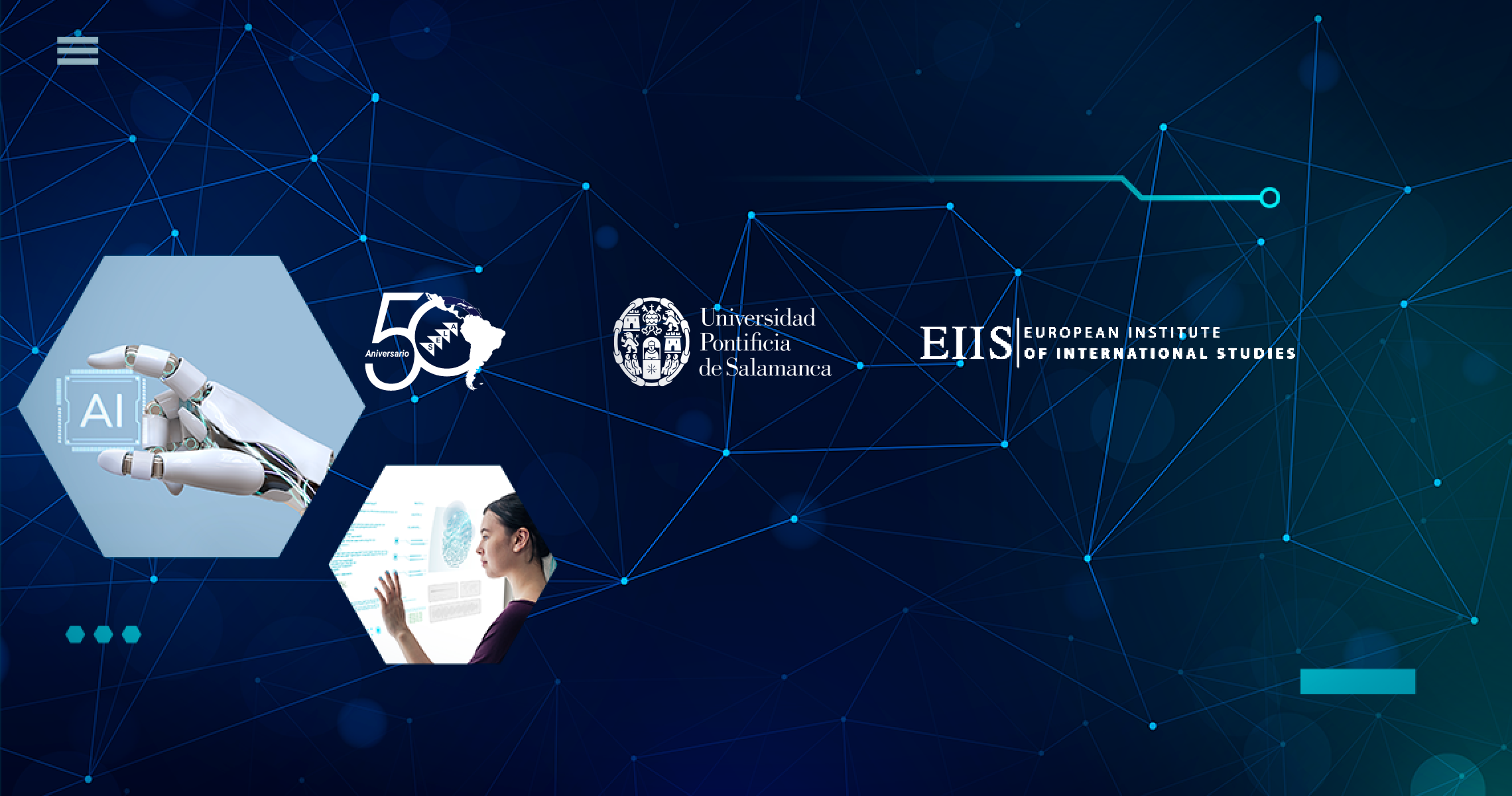
The Permanent Secretariat of the Latin American and Caribbean Economic System (SELA), in continuity with its training programme aimed at diplomats and high-level officials in areas related to diplomacy, technology and global governance, is pleased to offer this year’s course entitled “Ethical governance of artificial intelligence”. This course is organised by SELA and the European Institute of International Studies (Sweden), in collaboration with the Institute of European Studies and Human Rights of the Pontifical University of Salamanca (Spain).
In an increasingly digitised world, where AI plays a significant role in various sectors, it is crucial to ensure that its use is aligned with fundamental ethical principles, such as transparency, fairness, privacy, social justice and respect for human rights. This course aims to provide participants with the necessary tools to understand how ethical governance frameworks can facilitate the sustainable and responsible development of AI.
The course “Ethical governance of artificial intelligence” offers a global vision of the different initiatives promoted by nation states, regional integration organisations, international organisations and forums on ethical governance of artificial intelligence and human-centred artificial intelligence. In addition, participants will study how these initiatives impact on the creation of regulations, influencing public policies that seek to protect human rights, promote inclusion and mitigate the potential risks associated with the use of AI. Participants will learn from case studies and concrete examples of the application of ethical principles in AI at the global and regional level, in both governmental and multilateral contexts.
Throughout the course, we will analyse the challenges and opportunities presented by AI and how ethical frameworks can promote its responsible use, favouring innovation while protecting individuals and society as a whole. It will also emphasise the importance of developing regulations that not only foster technological competitiveness, but also safeguard fundamental rights, privacy and social equity.
The course will focus on the analysis of international policies and regulatory frameworks, highlighting initiatives at the level of regional integration organisations such as the European Union, or international bodies and forums such as OECD, UNESCO, International Telecommunications Union, Council of Europe, NATO, World Economic Forum and the efforts of countries such as the United States, China, Canada, United Kingdom, France, India, Brazil, Japan, Singapore, among others. In addition, the experiences of the Nordic countries concerning the promotion of digital ethics will be studied.
| Thursday, 22 May 2025 | |
| . | |
| 08:45 – 09:00 am (Caracas time) |
Welcome session
Moderator: Sayed Durán, Analyst of Social Development of SELA |
| . | |
| 9.00-10.30 | Ethical governance of artificial intelligence: G20 and the World Economic Forum
Speaker: Dr. Mario Torres Jarrín, Director of the Institute of European Studies and Human Rights of the Pontifical University of Salamanca (Spain) |
| . | |
| 10.30-11.30 |
Ethical AI governance initiatives in Asia: India, China, Japan, Singapore, South Korea and Taiwan Speaker. Dr. Miriam Acosta, Professor and Researcher at the Centre for International Studies of the University Institute of Lisbon (Portugal) and Director of the Chair in Interregionalism and Global Governance at the European Institute of International Studies (Sweden) |
| . | |
| 11.30-12.00 | Break |
| . | |
| 12.00-13.00 | Ethical governance of AI: OECD & Council of Europe
Speaker: Dr. Lourdes Daza Aramayo, Director of the LAC Center- Anglo American University (Czech Republic) and European Institute of International Studies (Sweden) |
| . | |
| 13.00-14.00 | Governmental initiatives on ethical governance of AI in the Americas and Europe: Canada, United States, Brazil, United Kingdom, France and Spain
Speaker: Dr. Jesús Flórez López, Professor, Faculty of Global Studies, Universidad Anáhuac (Mexico) and Associate Researcher at the European Institute of International Studies (Sweden) |
| . | |
| Friday, 23 May 2025 | |
| . | |
| 9.00-10.00 | United Nations & Artificial Intelligence: The High-Level Advisory Body on Artificial Intelligence, the International Telecommunication Union: “AI for Good” and UNESCO
Speaker: Dr. Cecilia Danesi, Researcher at the Institute of European Studies and Human Rights of the Pontifical University of Salamanca (Spain) |
| . | |
| 10.00-11.00 | The European Union Regulation on the protection of personal data and the free movement of such data
Speaker: Dr. Mónica Velasco, Director of the Chair in European Union-Latin American and Caribbean Relations, European Institute of International Studies (Sweden) |
| . | |
| 11.00-11.30 | Break |
| . | |
| 11.30-12.30 | The Nordic countries and human-centred artificial intelligence
Speaker: Anna Virkama, Associate Researcher at the Institute of European Studies and Human Rights of the Pontifical University of Salamanca (Spain) and Researcher at the European Institute of International Studies (Sweden) |
| . | |
| 12.30-14.00 | The European Union & Artificial Intelligence: EU AI Act
Speaker: Dr. Aline Beltrame de Moura, Professor of Law. Jean Monnet Chair, Federal University of Santa Catarina (Brazil) and Director of the Chair in European Union Studies, European Institute of International Studies (Sweden) |
